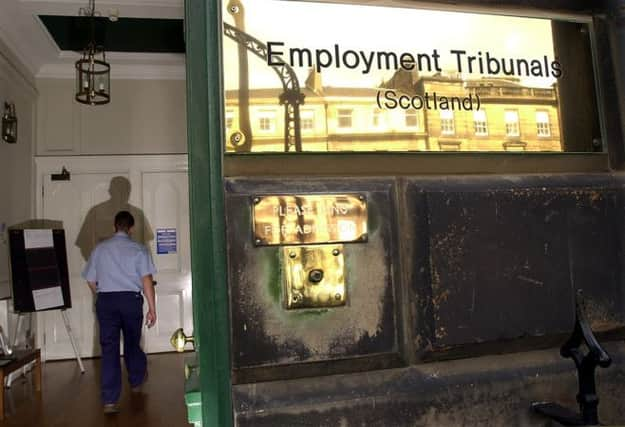Employment law forecast far from clear


AT FIRST glance, last year must have seemed pretty stormy for businesses trying to navigate the changing currents of employment law. September’s referendum caused uncertainty enough, while Westminster hosted heated debates on the merits of the controversial “zero-hours” contract. In the same period employers were rocked by the Employment Appeal Tribunal’s revelation that employees’ compulsory overtime ought to be reflected in their holiday pay remuneration.
Dark clouds have also been cast over the future of employment litigation with the impact of the new tribunal fees regime. Employment tribunal statistics, published quarterly, reflected a 72 per cent reduction in claims in the year following the introduction of fees in July 2013. In May, the compulsory ACAS early conciliation process was introduced, designed to facilitate settlements between employees and employers without litigation. Recent figures show approximately 58 per cent of all notifications made to ACAS did not result in further litigation, even where the dispute wasn’t resolved by conciliation.
Advertisement
Hide AdAdvertisement
Hide AdWhile these figures may be welcomed by business, it’s important to note they don’t include disputes resolved internally, without ACAS assistance. Whether this trend is a result of the overwhelming success of conciliation or the prospect of tribunal fees is highly questionable. Amidst this storm of uncertainty, one thing is clear – the cost of raising employment tribunal claims against business is proving prohibitive for many employees.
The year ahead is likely to see further change as employers and indeed the courts navigate their way through more choppy waters. 2015 will see Unison’s further appeal challenging the new fee regime while in Scotland we continue to await the outcome of Fox & Partners’ petition challenging fees.
In the build-up to the General Election, the debate over fees will be just one issue of many debated among the main political parties as leaders seek to strike a balance of popularity between businesses and staff claiming they are being denied access to justice. Whether fees remain or challenged successfully by the lawyers or the politicians who make the law, the one thing that seems certain is future uncertainty.
In addition to an increased minimum wage, Ed Miliband has promised a radical review of the feeing regime, with the unions pressing for them to be scrapped entirely. The SNP’s campaign for further devolution and the Smith Commission’s suggestions that tribunal fees become a devolved matter could lead to their eradication, at least north of the Border. The government’s Small Business, Enterprise and Employment Bill 2014-2015 seeks to fulfil the Tories’ proposal to outlaw exclusivity clauses in zero-hours contracts following a government consultation and Business Secretary, Vince Cable’s call for a crackdown on any zero-hours loopholes.
If they are elected, the Liberal Democrats intend to increase the minimum wage and provide greater assistance to party litigants. Meanwhile, Ukip and the Tories are proposing the introduction of a British Bill of Rights which will replace the existing Human Rights Act. The growing doubt over our membership of the EU will also have substantial legal ramifications as so many key legal issues such as working time, employee health and safety and of course, holiday pay are determined in the European Parliament in Brussels and the Court of Justice of the European Union in Luxembourg.
Despite falling unemployment across the UK, the climate in the North East has seen a spike in redundancies in the oil and gas sector which is set to have a knock-on effect for employers and employees throughout Scotland. In addition, 2015 will see employees, business directors and HR managers face the challenges of the complex shared parental leave regulations (in force since 1 December, 2014). The government’s announcement on 19 December that backdated holiday pay claims will be capped at two years provided some relief for employers, yet any claims lodged before 1 July, 2015 will be subject to the current rules on limitation. Further litigation challenging the retrospective claims issue seems inevitable.
Whatever the outcome of May’s election, the forecast for employment law is far from clear. Business will need to prepare for further changes in the prevailing political undercurrent, which could transform yet again, the legal and regulatory environment in which they need to operate.
• Chris Phillips is an employment law partner with Simpson and Marwick: www.simpmar.com